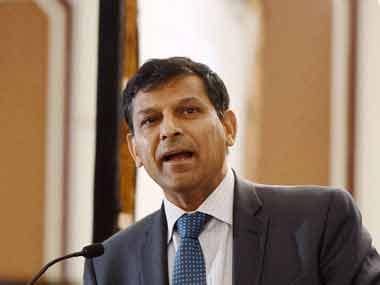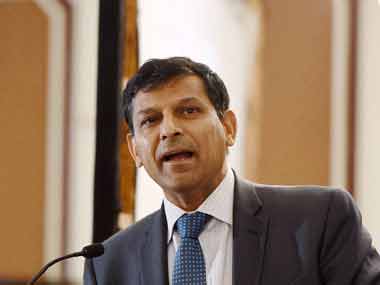Arundhati Bhattacharya’s prophecy on payments banks, it appears, is spooking the companies that threw their hats in the ring without giving a proper thought to the difficulties involved in setting it up. The State Bank of India (SBI) chairman has long argued that, by design, payments banks don’t have a business model. [caption id=“attachment_2786658” align=“alignleft” width=“380”]  Raghuram Rajan. PTI[/caption] Of the 11 companies that were given in-principle nod by the Reserve Bank of India (RBI) to set up payments banks in August, 2015, three – Tech Mahindra, Cholamandalam Finance and Dilip Shanghvi-IDFC Bank-Telenor JV, have already dropped out. This leaves only eight applicants in the fray—India Post, Airtel Money, Reliance Industries, Vijay Shekhar Sharma, Aditya Birla Nuvo, Vodafone MPesa, Fino PayTech and NSDL. Why are firms shying away from their plans on payments banks? The reason is simple. Unlike regular banks, which typically do business for interest margins from the lending business using deposit money, these entities do not have the liberty to lend. Payments bank have to primarily survive on fee-income since 75 percent of their deposits have to be mandatorily invested in government bonds with maturity up to a year. Also, payments banks can only accept deposits up to Rs 1 lakh. To get deposits, competing with regular banks which offer up to 7 percent return on their savings deposits, payments banks will have to offer aggressive rates. However, a majority of the amount in government bonds for a maximum 7.45 percent-8 percent (the approximate yield on one year paper), would mean no real business. The cost to set up and run operations far outweighs the benefits. Of course, these companies aren’t here for charity. The challenges As Bhattacharya of SBI has pointed out, there is a big challenge on customer acquisition. Why would someone who is using a mobile banking service that is readily available be willing to migrate to a new bank? This too, given that technology, such as unified payments system, would enable cheaper transactions through mobile phones. The advantage of using mobile phones for banking will make it not too difficult for those companies with an existing mobile banking network. Here the cost of rolling out the service will be far lower than a firm which wants to start from scratch. This must be the reason why a few firms have decided to back out after securing an in-principle licence nod. No one wants to step into a losing battle. The question is: Why has it taken nine months for these firms to understand that the business model is unviable? The rules were clear in the draft guidelines and final guidelines. This dropping off from the race clearly shows that not much thought has gone into the decision-making rooms of these companies when they applied for licences. The RBI has evidently not taken the withdrawals in good humor. That is why RBI deputy governor S S Mundra has said the central bank feels aggrieved ‘because a lot of efforts from the part of RBI goes in processing these applications’. Can firms be penalized? The RBI doesn’t have a policy to penalize entities who have given up their banking licences. There aren’t many instances in the past when companies have first competed for banking licenses, won it and then given up halfway. When the RBI commenced the licencing process for payments banks, the idea was to offer one more layer of payments services to the yet-to-be banked in the country. The mandate was clear from the very beginning. The RBI should consider imposing penalty on firms dropping out half-way considering the time and cost involved in the selection process. It should also reconsider an entry capital of Rs 100 crore for smaller banks, since such low entry-capital requirement let’s non-serious players to throw their hat in the ring. This will also help weed out non-serious players from the bank licence fray as the RBI governor Raghuram Rajan is preparing to guide the industry to on-tap licencing regime when the stage will open for lot more contestants. The withdrawal of three licence-winners from the race doesn’t necessarily mean that payments banks are going to be a flop idea. But, it surely tells us that the business is more for telecom companies and prepaid instruments that have a platform in place. Of the 41 companies that applied for bank licences, 11 were given in-principle nod and now only eight are still in the fray. One shouldn’t be surprised if a few more dropout. But the good news is that the competition will build a few strong payments banks that have understood the mandate and the business model.
When the RBI commenced the licencing process for payments banks, the idea was to offer one more layer of payments services to the yet-to-be banked in the country.
Advertisement
End of Article


)

)
)
)
)
)
)
)
)



